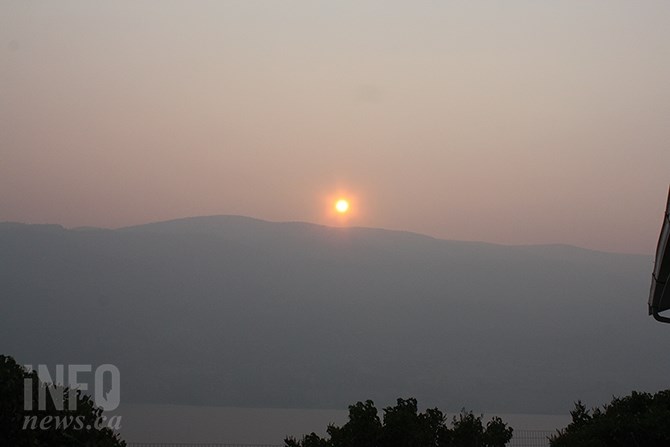
FILE. Smoky skies have returned to B.C.
(STEVE ARSTAD / iNFOnews.ca)
September 13, 2020 - 8:06 AM
Smoke from wildfires raging in the northwestern United States has enveloped B.C.
"The anticipated smoke trajectory indicates that the areas impacted will grow to the north and east as the weekend progresses with the most widespread impacts expected on Sunday," Environment Canada said in a smoky skies bulletin issued Sept. 12, saying the issue will linger for up to 72 hours.
The province’s Air Quality Health Index shows that the air in almost every region in B.C. as of Sunday morning ranked at "very high risk. A few regions, including Kamloops, that have yet to see smoke sink in, will soon be in the same condition.
The very high-risk category indicates that people should avoid strenuous activities outdoors. Children and the elderly should also avoid outdoor physical exertion, according to the province.
The prevailing wisdom is that the best course of action is to reduce or reschedule strenuous activities outdoors, especially if coughing and throat irritation occurs.
The BC Centre for Disease Control said wildfire smoke is a complex mixture of gases and particles that interact and change as they move away from fire.
“The smaller the particles, the more harmful they are to human health,” the BCCDC states.
The component most often measured is the PM 2.5, which refers to all particles that measure 2.5 millionths of a metre or less. PM 2.5 can be inhaled deep into lungs where it can cause irritation that may lead to inflammation that affects other parts of the body.
“Most communities in B.C. have low concentrations of PM 2.5 but concentrations can be more than 20 times higher than usual on smoky days,” the BCCDC said.
“Wildfire seasons are getting longer and more extreme in B.C., so preseason planning is important for protecting your health from wildfire smoke.”
Exposure to air pollution can irritate the lungs, cause inflammation, and alter immune function, making it more difficult to fight respiratory infections such as COVID-19.
The Lower Mainland is the worst off, though, with a 100 plus level. It’s already had several bad days of smoke, and on a site called IQ Air Vancouver currently has been rated as the worst air quality in the world, next to Portland.
The fires have taken a toll on Washington, California and Oregon.
At a news conference on Friday, Gov. Jay Inslee said the fires shouldn’t be called wildfires, but “climate fires.”
“This is not an act of God,” Inslee said. “This has happened because we have changed the climate of the state of Washington in dramatic ways.”
To contact a reporter for this story, email Kathy Michaels or call 250-718-0428 or email the editor. You can also submit photos, videos or news tips to the newsroom and be entered to win a monthly prize draw.
We welcome your comments and opinions on our stories but play nice. We won't censor or delete comments unless they contain off-topic statements or links, unnecessary vulgarity, false facts, spam or obviously fake profiles. If you have any concerns about what you see in comments, email the editor in the link above.
News from © iNFOnews, 2020